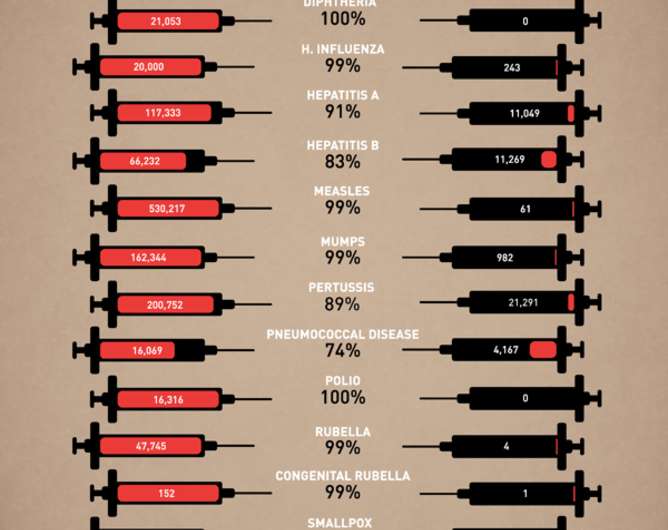Swine flu vaccine's link to narcolepsy is no reason not to protect yourself

A 12-year-old boy recently won £120,000 in compensation after developing a severely debilitating case of narcolepsy triggered by swine flu vaccination.
This kind of story is often claimed as evidence by those who believe vaccination is a highly dangerous practice that should be stopped. Vaccines can occasionally have detrimental side-effects and compensating people for these isn't new. The UK government made estimated payments of £3.5m between 1997 and 2005 under its Vaccine Damage Payment scheme.
However, this number is dwarfed by the costs to the NHS of treating infectious diseases. Healthcare-associated infections (those that are contracted through contact with the health system) alone are estimated to cost the NHS £1bn a year and GPs prescribe between £140m and £160m worth of antibiotics each year. If you also consider the estimated global reduction in deaths of 6m a year that vaccination programmes have produced (see infographic below) it becomes clear why the vast majority of clinicians support their use.
All forms of medicine bring with them some level of risk, and these risks are often not apparent until they have been used on large populations. What is important is that when side effects are reported, their association with the treatment is robustly and rigorously determined.

Without this, we could see a repeat of the persistent myth that the measles, mumps and rubella (MMR) vaccine is linked to autism. This began when the now struck-off doctor, Andrew Wakefield, published research that was later shown to be false, but is still quoted by anti-vaccine campaigners today and has contributed to a resurgence in measles cases.
So the first question in this instance is why do we need a vaccine to protect us against swine flu? The H1N1 influenza virus responsible for swine flu has caused two pandemics in recorded history, the first of which killed up to an estimated 100m people (3-5% of the world's population) in the space of two years from 1918. So when it re-emerged and was classified as pandemic in 2009, concern levels were understandably high and decisions were made to recommend the widespread use of the available anti-swine flu vaccine.
Missing link
In the months following the increase in uptake of the swine flu vaccine Pandemrix, several European countries reported an increase in cases of narcolepsy, a rare sleeping disorder. The link between the vaccine and narcolepsy is not yet fully understood. But some researchers believe one of the viral proteins used in the vaccine may cause the body's immune system to attack the specific set of nerves in the brain that regulates sleep.
What is interesting, however, is that in China, where there was little uptake of this vaccine, there was an increase in the number of people reporting narcolepsy who also contracted and recovered from swine flu. This suggests that exposure to the virus itself can cause this unfortunate and debilitating disorder.
If this proves true it will help improve the design of future vaccines and may provide some comfort to those who developed narcolepsy after receiving Pandemrix. Had they not been vaccinated and then caught swine flu, they would have been at much greater risk of dying and, if they survived, may have developed narcolepsy anyway.
All public health decisions are taken by weighing the costs versus the benefits. And in this instance, the benefit of this vaccination programme far outweighs the costs. In the UK there are estimated to be 100 individuals who claim to have been affected by this vaccine out of the 4.8m who received it. While the most recent swine flu pandemic was nowhere near the scale of that in 1918, there were 28,465 cases in the UK and 392 deaths, and that is with the vaccination programme in place. It's a daunting prospect to consider how these numbers would look had there been no vaccine available.
Given that Spain has recently reported its first case of diphtheria in 28 years – a disease considered by many doctors as the worst infectious disease to die from – it is important to represent vaccination news story clearly. There is no global big-pharma conspiracy here. Vaccines are not yet perfect, but they save millions of lives every year.
This story is published courtesy of The Conversation (under Creative Commons-Attribution/No derivatives).
![]()
















